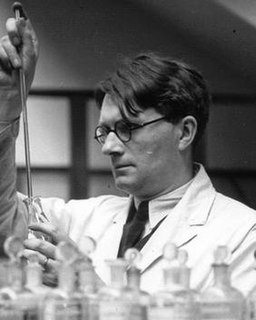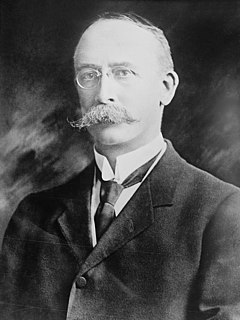Top 1200 No Sympathy Quotes & Sayings - Page 20
Explore popular No Sympathy quotes.
Last updated on April 15, 2025.
Why do terrorist attacks that kill a handful of Europeans command infinitely more American attention than do terrorist attacks that kill far larger numbers of Arabs? A terrorist attack that kills citizens of France or Belgium elicits from the United States heartfelt expressions of sympathy and solidarity. A terrorist attack that kills Egyptians or Iraqis elicits shrugs. Why the difference? To what extent does race provide the answer to that question?
The nature of men and of organized society dictates the maintenance in every field of action of the highest and purest standards of justice and of right dealing.... By justice the lawyer generally means the prompt, fair, and open application of impartial rules; but we call ours a Christian civilization, and a Christian conception of justice must be much higher. It must include sympathy and helpfulness and a willingness to forego self-interest in order to promote the welfare, happiness, and contentment of others and of the community as a whole.
There are times in a person's life when he or she must make a choice to believe. I choose to believe the sun will rise tomorrow. I also choose to believe that if you go to bed hungry you will wake up ready to eat. I've met a group of men in a faraway country who choose to believe that if you stand on a tree stump for an hour you will gain sympathy for trees. I am already quite sympathetic to trees, so I choose to think they are bonkers.
I will always fight for progress and reform, never tolerate injustice or corruption, always fight demagogues of all parties, never belong to any party, always oppose privileged classes and public plunderers, never lack sympathy with the poor, always remain devoted to the public welfare, never be satisfied with merely printing news, always be drastically independent, never be afraid to attack wrong, whether by predatory plutocracy or predatory poverty.
Isn't it grand, isn't it good, that language has only one word for everything we associate with love - from utter sanctity to the most fleshly lust? The result is perfect clarity in ambiguity, for love cannot be disembodied even in its most sanctified forms, nor is it without sanctity even at its most fleshly. Love is always simply itself, both as a subtle affirmation of life and as the highest passion; love is our sympathy with organic life.
It was necessary to put the South at a moral disadvantage by transforming the contest from a war waged against states fighting for their indepdence into a war waged against states fighting for the maintenance and extension of slavery...and the world, it might be hoped, would see it as a moral war, not a political; and the sympathy of nations would begin to run for the North, not for the South.
It seems to me that the idea of a personal God is an anthropological concept which I cannot take seriously. I also cannot imagine some will or goal outside the human sphere... Science has been charged with undermining morality, but the charge is unjust. A man's ethical behavior should be based effectually on sympathy, education, and social ties and needs; no religious basis is necessary. Man would indeed be in a poor way if he had to be restrained by fear of punishment and hope of reward after death.
Obviously, therefore, we must be able to transcribe what is in us into our mental and objective consciousness, by establishing a relationship between the life in us and observation of that life in Nature. This we find supremely well expressed by the ancient Egyptians. It is a knowledge of magic, pure and sane, which can lead rapidly toward the spiritual goal of our lives, owing to the fact that we can evoke, by means of the sympathy of analogues in our surroundings, the consciousness of the heart latent in us.
Although we like to think of young children's lives as free of troubles, they are in fact filled with disappointment and frustration. Children wish for so much, but can arrange so little of their own lives, which are so often dominated by adults without sympathy for the children's priorities. That is why children have a much greater need for daydreams than adults do. And because their lives have been relatively limited they have a greater need for material from which to form daydreams.
... Grief is selfish. It is indulged in for self-gratification, not for love. Cosmic man knows the beauty and unreality of death. Sympathy for the afflicted makes a reality of the affliction by its recognition as an infliction, while sorrow for the loss of anything, or for the »unfortunate« condition of anybody, is forgetful of the beauty and abundance of all-giving God and Nature. The Mind of God knows but one unchanging emotion - ECSTASY - the ecstasy of Love - the ecstasy which has its beginnings in an inner joyousness of one who is far on the road to the discovery of his immortal Self.
We must not permit our respect for the dead or our sympathy for the living to lead us into an act of injustice to the balance of the living. I will not attempt to prove that Congress has no power to appropriate this money as an act of charity. Every member upon this floor knows it. We have the right as individuals to give away as much of our own money as we please in charity; but as members of congress we have no right to appropriate a dollar of the public money.
The secret of success in society is a certain heartiness and sympathy. A man who is not happy in company, cannot find any word in his memory that will fit the occasion; all his information is a little impertinent. A man who is happy there, finds in every turn of the conversation occasions for the introduction of what he has to say. The favorites of society are able men, and of more spirit than wit, who have no uncomfortable egotism, but who exactly fill the hour and the company, contended and contenting.
Cry your grief to God. Howl to the heavens. Tear your shirt. Your hair. Your flesh. Gouge out your eyes. Carve out your heart. And what will you get from Him? Only silence. Indifference. But merely stand looking at the playbills, sighing because your name is not on them, and the devil himself appears at your elbow full of sympathy and suggestions. And that's why I did it....Because God loves us, but the devil takes an interest.
From the standpoint of daily life, however, there is one thing we do know: that we are here for the sake of each other - above all for those upon whose smile and well-being our own happiness depends, and also for the countless unknown souls with whose fate we are connected by a bond of sympathy. Many times a day I realize how much my own outer and inner life is built upon the labors of my fellow men, both living and dead, and how earnestly I must exert myself in order to give in return as much as I have received.
A gentleman, is a rarer thing than some of us think for. Which of us can point out many such in his circle--men whose aims are generous, whose truth is constant and elevated; who can look the world honestly in the face, with an equal manly sympathy for the great and the small? We all know a hundred whose coats are well made, and a score who have excellent manners; but of gentlemen how many? Let us take a little scrap of paper, and each make out his list.
Yes," Marcus says. "I understand that you are concerned -- that you all are concerned. You had never heard of the Divergent a week ago, and now all that you know is that they are immune to something to which you are susceptible, and that is a frightening thing. But I can assure you that there is nothing to be afraid of, as far as we are concerned." As he speaks, his head tilts and his eyebrows lift in sympathy, and I understand at once why some people like him. He makes you feel that if you just placed everything in his hands, he would take care of it.
I believe, and this is something I also learned from Alice Munro, that there's a moment where the personal becomes totally universal. When you see that person in their pathetic moment, that's the moment where the completely unifying sympathy with that person is possible - where you're no longer a person here and they're someone over there, and you can really feel like one, you can really feel like a human being. Or more like, you can really feel like flesh and blood, because I feel like that moment is the same thing with animals.
My urgent advice to you would be, not only always to think first of America, but always, also, to think first of humanity. You do not love humanity if you seek to divide humanity into jealous camps. Humanity can be welded together only by love, by sympathy, by justice, not by jealousy and hatred. I am sorry for the man who seeks to make personal capital out of the passions of his fellowmen. He has lost touch with the ideal of America. For America was created to unit mankind.
Politics is the practical exercise of the art of self-government, and somebody must attend to it if we are to have self-government; somebody must study it, and learn the art, and exercise patience and sympathy and skill to bring the multitude of opinions and wishes of self-governing people into such order that some prevailing opinion may be expressed and peaceably accepted. Otherwise, confusion will result either in dictatorship or anarchy. The principal ground of reproach against any American citizen should be that he is not a politician. Everyone ought to be, as Lincoln was.
If a wave of service sweeps over the land, catching everyone in its enthusiasm, it will be able to wipe off the mounds of hatred, malice and greed that infest the World. Attune your hearts so that it will vibrate in sympathy with the woes and joys of your fellow-men. Fill the World with Love. Love will warn you against advising another to do something which you yourself are unwilling to do; your conscience will tell you that you are living in a lie!
I noted about Cate Blanchett was her very positive lack of concern for how she turns out in Cinderella. She is happy to be a villainess and very pleased to be encouraged as I did with her to reveal this backstory and feel as though this was very human, that this broken heart of hers, if you might regard it that way, would be visible, but she never played for sympathy and I really admired that about her, so she's just there, she just is and uncompromisingly.
Given the realities of the U.S. criminal justice system, the prosecution may be unable to salvage this case. But just because that system fails victims on the regular doesn't mean we have to, too. French commentators are already calling for DSK to jump back into the country's presidential race and ride a wave of sympathy into office. Really, the stakes are greater than even that political prize. If we accept the narrative that only perfect women are raped, we risk sacrificing justice not only for this woman, but for victims of sexual assault everywhere. After all, nobody's perfect.
Most British playwrights of my generation, as well as younger folks, apparently feel somewhat obliged to Russian literature - and not only those writing for theatres. Russian literature is part of the basic background knowledge for any writer. So there is nothing exceptional in the interest I had towards Russian literature and theatre. Frankly, I couldn't image what a culture would be like without sympathy towards Russian literature and Russia, whether we'd be talking about drama or Djagilev.
Applause is an instinctive, unconscious act expressing the sympathy between actors and audience. Just as our art demands more instinct than intellect in its exercise, so we demand of those who watch us an apppreciation of the simple unconscious kind which finds an outlet in clapping rather than the cold intellectual approval which would self-consciously think applause derogatory. I have yet to meet the actor who was sincere in saying that he disliked applause.
Lust, that state commonly known as 'being in love,' is a kind of madness. It is a distortion of reality so remarkable that it should, by rights, enable most of us to understand the other forms of lunacy with the sympathy of fellow-sufferers. But, paradoxically, mad and suffering as one is, and the heat of the flame, few of us are glad as we feel that passion slip away No, while most people have been at their unhappiest when in love, it is nevertheless the state the human being yearns for above all.
What a position of transcendent horror must that be, where the perpetrator of a great crime, till then a stranger to positive guilt, finds himself suddenly cut off, and forever, from all human sympathy, isolated from hope, the tenant of a solitary cell, and with a wide, impassable gulf yawning between him and that great brotherhood of which he has ceased to be a part--no longer regarded as a man, but as a monster in the shape of one, from whom Mercy herself turns away, and for whom Pity even has no tears!
When I look at Jesus' warm and intimate friendships, my heart fills with praise that Jesus was. . . a man. A man of flesh-and-blood reality. His heart felt the sting of sympathy. His eyes glowed with tenderness. His arms embraced. His lips smiled. His hands touched. Jesus was male! Jesus invites us to relate to him as the Son of Man. And because he is fully man, we can relate to Jesus with affection and love.
The problem isn't who is in charge. It's what is in charge. The problem is that people are encouraged to function as machines. Or, actually, as mechanisms. Human emotion and sympathy are unprofessional. They are inappropriate to the exercise of reason. Everything which makes people good - makes them human - is ruled out. The system doesn't care about people, but we treat it as if it were one of us, as if it were the sum of our goods and not the product of our least admirable compromises.
The essence of Christianity is the appeal to the life of Christ as a revelation of the nature of God and of God's agency in the world. The record is fragmentary, inconsistent, and uncertain. . . . But there can be no doubt as to what elements in the record have evoked a response from all that is best in human nature. The Mother, the Child, and the bare manger: the lowly man, homeless and self-forgetful, with his message of peace, love, and sympathy: the suffering, the agony, the tender words as life ebbed, the final despair: and the whole with the authority of supreme victory.
To put it in a nutshell, the Central and South American high cultures of antiquity were entirely worthy of comparison with what the Old World had achieved by the time of the Han, the Gupta, and the Hellenistic age. The fact is that the Amerindian high cultures were a human modality of their own, and those Spaniards who came among them first would have had the sensation, if they had ever heard of such literature, of treading in a world of imaginative science fiction. But it was real, and the Amerindian achievements deserve all our sympathy and praise.
It takes courage to care for others, because people who care run the risk of being hurt. It's not easy to let your guard down, open your heart, react with sympathy or compassion or indignation or enthusiasm when usually it's much easier-and sometimes much safer-not to get involved. People who take the risk make a tremendous discovery: The more things you care about, and the more intensely you care, the more alive you are.
Loneliness is necessary for pure poetry. When someone intrudes into the poet's life (and any sudden personal contact, whether in the bed or in the heart, is an intrusion) the poet loses his or her balance for a moment, slips into being what he or she is, uses his or her poetry as one would use money or sympathy. The person who writes the poetry emerges, tentatively, like a hermit crab from a conch shell. The poet, for that instant, ceases to be a dead person.
My parents were Hungarian immigrants; my father was a tailor and we lived in the back of a tailor store. And that was my first inkling of what it was like to be raised in America. It had a profound effect on me - I saw different people coming in all the time with different attitudes and I liked it. And as I grew older, I found that I was able to use something inside of me to get some sympathy if I wanted it. I used to shine shoes, and I would use a waif-like look. I'd get a dime and I'd be as happy as could be.
Germany is not the only country that one could call post-heroic. But there is an additional aspect for Germany when it comes to this generally Western stance - one which Vladimir Putin would call decadent. For almost four-and-a-half decades after World War II, we didn't have full sovereignty. During this period, we existed in a niche of global politics. This experience of limited sovereignty continues to have an effect. Many Germans still have sympathy for the idea that Germany can exist as something like a large Switzerland in the middle of Europe.
Social evolution is a resultant of the interaction of two wholly distinct factors: the individual ... bearing all the power of initiative and origination in his hands; and, second, the social environment with its power of adopting or rejecting both him and his gifts. Both factors are essential to change. The community stagnates without the impulse of the individual. The impulse dies away without the sympathy of the community.
The following proposition seems to me in a high degree probable—namely, that any animal whatever, endowed with well-marked social instincts, the parental and filial affections being here included, would inevitably acquire a moral sense or conscience, as soon as its intellectual powers had become as well, or nearly as well developed, as in man. For, firstly, the social instincts lead an animal to take pleasure in the society of its fellows, to feel a certain amount of sympathy with them, and to perform various services for them.
Trials make more room for consolation. There is nothing that makes a man have a big heart like a great trial. I always find that little, miserable people, whose hearts are about the size of a grain of mustard seed, never have had much to try them. I have found that those people who have no sympathy for their fellows — who never weep for the sorrows of others — very seldom have had any woes of their own. Great hearts can only be made by great troubles.
As a composer I might class myself as a Neo-Romantic, inasmuch as I have always regarded music as a highly personal and emotional form of expression. I like to write music which takes its inspiration from poetry, art and nature. I do not care for purely decorative music. Although I am in sympathy with modern idioms, I abhor music which attempts nothing more than the illustration of a stylistic fad. And in using modern techniques, I have tried at all times to subjugate them to a larger idea or a grander human feeling.
There is another class of coloured people who make a business of keeping the troubles, the wrongs, and the hardships of the Negro race before the public. Having learned that they are able to make a living out of their troubles, they have grown into the settled habit of advertising their wrongs — partly because they want sympathy and partly because it pays. Some of these people do not want the Negro to lose his grievances, because they do not want to lose their jobs.
Why pray for the Kingdom of God to come unless you have in your heart a desire and a willingness to aid in its establishment? Praying for His will to be done and then not trying to live it, gives you a negative answer at once. You would not grant something to a child who showed that attitude towards a request he is making of you. If we pray for the success of some cause or enterprise, manifestly we are in sympathy with it. It is the height of disloyalty to pray for God's will to be done, and then fail to conform our lives to that will.
According to the true Indian view, our consciousness of the world, merely as the sum total of things that exist, and as governed by laws, is imperfect. But it is perfect when our consciousness realizes all things as spiritually one with it, and therefore capable of giving us joy. For us the highest purpose of this world is not merely living in it, knowing it and making use of it, but realizing our own selves in it through expansion of sympathy; not alienating ourselves from it and dominating it, but comprehending and uniting it with ourselves in perfect union.
This is a glorious biography ... The time is ripe for a new biography of Edith Wharton of this intimacy and on this scale ... Lee the biographer pursues her subject down every winding corridor, into every hidden passage and dark corner ... Her critical exploration of Edith Whartons work is dazzlingly assured ... A feat of exhaustive research, and finely tuned to Whartons creative achievement at the same time ... [Wharton] could scarcely have failed to be impressed by ... its artistic sympathy, its sonorous depths, and its soaring conception.
Adam Smith is an egalitarian, he believed in equality of outcome, not opportunity. He is an enlightenment figure, pre-capitalist. He says, suppose in England, one landowner got most of the land and other people would have nothing to live on. He says it wouldn't matter much, because the rich land owner, by virtue of his sympathy for other people would distribute resources among them, so that by an invisible hand, we would end up with a pretty egalitarian society. That is his conception of human nature.
Compassion does not only refine and civilize human nature, but has something in it more pleasing and agreeable, than what can be met with in such an indolent happiness, such an indifference to mankind, as that in which the stoics placed their wisdom. As love is the most delightful passion, pity is nothing else but love softened by a degree of sorrow: In short, it is a kind of pleasing anguish, anguish as well as generous sympathy, that knits mankind together, and blends them in the same common lot.
Jesus' whole life and mission involve accepting powerlessness and revealing in this powerlessness the limitlessness of God's love. Here we see what compassion means. It is not a bending toward the underprivileged from a privileged position; it is not a reaching out from on high to those who are less fortunate below; it is not a gesture of sympathy or pity for those who fail to make it in the upward pull. On the contrary, compassion means going directly to those people and places where suffering is most acute and building a home there.
It is Satan's work to fill men's hearts with doubt. He leads them to look upon God as a stern judge. He tempts them to sin, and then to regard themselves as too vile to approach their heavenly Father or to excite His pity. The Lord understands all this. Jesus assures His disciples of God's sympathy for them in their needs and weaknesses. Not a sigh is breathed, not a pain felt, not a grief pierces the soul, but the throb vibrates to the Father's heart.
I do not care if they do not like me," he said. "Maybe then they will let me alone, and I will not have to stay in China." The thought visibly struck him, and his head came up with sudden enthusiasm. "If I were very offensive, do you suppose they would go away now?" he asked. "Laurence, what would be particularly insulting" Hammond looked like Pandora, the box open and horrors loose upon the world. Laurence was inclined to laugh, but he stifled it out of sympathy.
Compassion is an emotion of which we ought never to be ashamed. Graceful, particularly in youth, is the tear of sympathy, and the heart that melts at the tale of woe. We should not permit ease and indulgence to contract our affections, and wrap us up in a selfish enjoyment; but we should accustom ourselves to think of the distresses of human, life, of the solitary cottage; the dying parent, and the weeping orphan. Nor ought we ever to sport with pain and distress in any of our amusements, or treat even the meanest insect with wanton cruelty.
As a physician I have sympathy for patients suffering from pain and other medical conditions. Although I understand many believe marijuana is the most effective drug in combating their medical ailments, I would caution against this assumption due to the lack of consistent, repeatable scientific data available to prove marijuana's benefits. Based on current evidence, I believe that marijuana is a dangerous drug and that there are less dangerous medicines offering the same relief from pain and other medical symptoms.
Shocked to learn of the serious attacks against certain areas in New York City and Washington D.C. on September 11, which caused horrendous casualty, I wish to express, on behalf of the Chinese Government and people, our deepest sympathy and solicitude to you and, through you, to the Government and people of the United States. I wish also to extend our condolences to the families of the victims. The Chinese Government has consistently condemned and rejected all forms of terrorist violence.
I'm not a fan of the death penalty. At some level I think killing is wrong, but I don't have sympathy for most of the people sentenced - I'm not a passionate anti-death penalty person. In truth, given all the other problems of the justice system, the numbers are so small, I think there are bigger fish to fry. Ironically, in terms of mental health and care, death row is probably the best prison situation to be in. There's a little more public eye on that, to ensure at least minimal levels of official treatment are actually given to death row prisoners.
People tend to care about dogs because they generally have more experience with dogs as companions; but other animals are as capable of suffering as dogs are. Few people feel sympathy for rats. Yet rats are intelligent animals, and there can be no doubt that rats are capable of suffering and do suffer from countless painful experiments performed on them. If the army were to stop experiments on dogs and switch to rats instead, we should not be any less concerned.
He is not a true man of science who does not bring some sympathy to his studies, and expect to learn something by behavior as well as by application. It is childish to rest in the discovery of mere coincidences, or of partial and extraneous laws. The study of geometry is a petty and idle exercise of the mind, if it is applied to no larger system than the starry one. Mathematics should be mixed not only with physics but with ethics; that is mixed mathematics. The fact which interests us most is the life of the naturalist. The purest science is still biographical.
The pleasant converse of the fireside, the simple songs of home, the words of encouragement as I bend over my school-tasks, the kiss as I lie down to rest, the patient bearing with the freaks of my restless nature, the gentle counsels mingled with reproofs and approvals, the sympathy that meets and assuages every sorrow, and sweetens every little success--all these return to me amid the responsibilities which press upon me now, and I feel as if I had once lived in heaven, and, straying, had lost my way.
If every day a man takes orders in silence from an incompetent superior, if every day he solemnly performs ritual acts which he privately finds ridiculous, if he unhesitatingly gives answers to questionnaires which are contrary to his real opinions and is prepared to deny his own self in public, if he sees no difficulty in feigning sympathy or even affection where, in fact, he feels only indifference or aversion, it still does not mean that he has entirely lost the use of one of the basic human senses, namely, the sense of humiliation.
Personal sympathy has helped me on very much. My husband from first to last has watched every picture with delight, and it is my daily habit to run to him with every glass upon which a fresh glory is newly stamped, and to listen to his enthusiastic applause. This habit of running into the dining-room with my wet pictures has stained such an immense quantity of table linen with nitrate of silver, indelible stains, that I should have been banished from any less indulgent household.
The mark of man is initiative, but the mark of woman is cooperation. Man talks about freedom; woman about sympathy, love, sacrifice. Man cooperates with nature; woman cooperates with God. Man was called to till the earth, to "rule over the earth"; woman to be the bearer of a life that comes from God.
I look at it this way... For centuries now, man has done everything he can to destroy, defile, and interfere with nature: clear-cutting forests, strip-mining mountains, poisoning the atmosphere, over-fishing the oceans, polluting the rivers and lakes, destroying wetlands and aquifers... so when nature strikes back, and smacks him on the head and kicks him in the nuts, I enjoy that. I have absolutely no sympathy for human beings whatsoever. None. And no matter what kind of problem humans are facing, whether it's natural or man-made, I always hope it gets worse.
I am compassionate. I allow my heart and imagination to embrace the difficulties and concerns of others. While maintaining my own balance, I find it within myself to extend sympathy, attention, and support. When they are grieved, I listen with openness and gentle strength. I offer loyalty, friendship, and human understanding. Without undermining or enabling, I aid and assist others to find their strength. I allow the healing power of the Universe to flow through me, soothing the hearts and feelings of those I encounter.
Widen your shriveled heart, make the interests of others your own and serve them as much as you can by sympathy, kindness, presents and so forth. So long as one enjoys the things of this world and has needs and wants, it is necessary to minister to the needs of one's fellow men. Otherwise one cannot be called a human being. Whenever you have the opportunity, give to the poor, feed the hungry, nurse the sick - do service as a religious duty and you will come to know by direct perception that the person served, the one who serves and the act of service are separate only in appearance.
























































